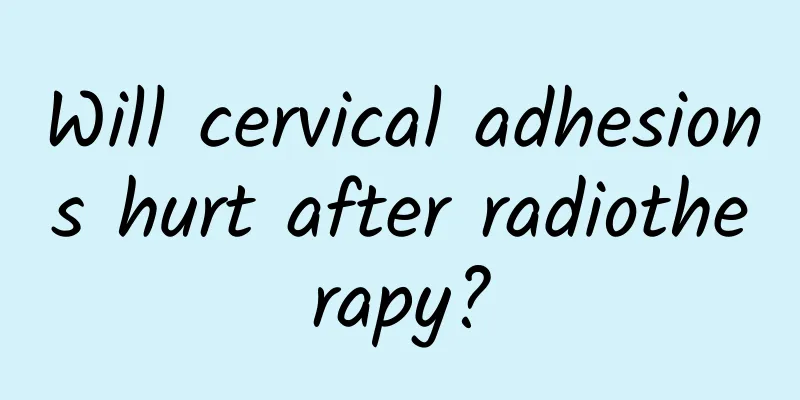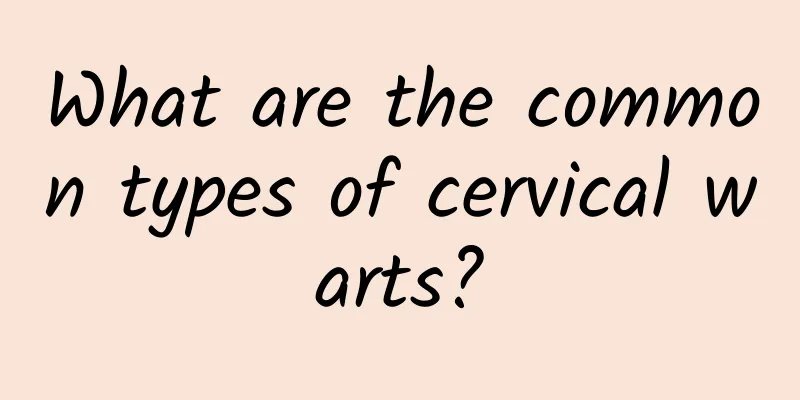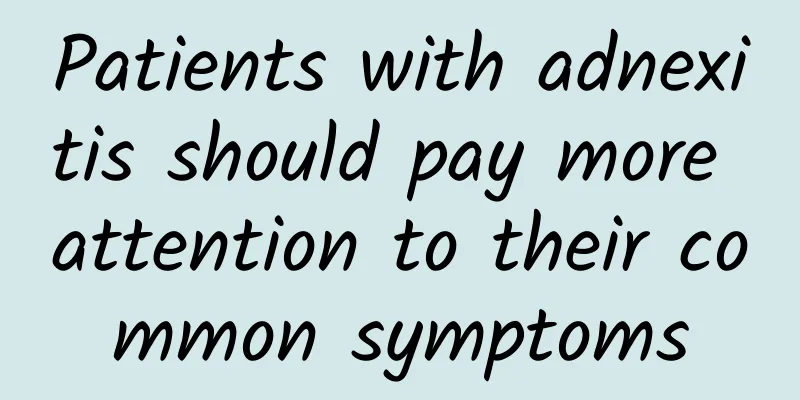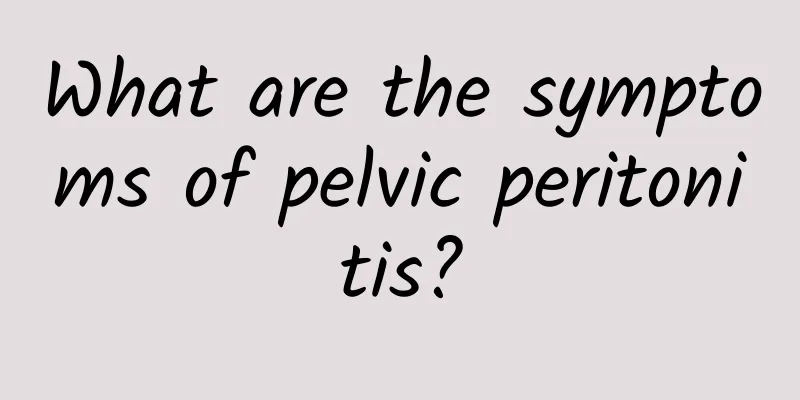Will cervical adhesions hurt after radiotherapy?

|
Cervical adhesions after radiotherapy may cause pain, especially during menstruation or when the doctor performs a gynecological examination. The specific cause of the pain may be related to local inflammation, tissue scarring, and cervical passage blockage caused by radiotherapy. Treatment may include medication improvement, physical therapy, or surgical intervention if necessary. 1. Causes of cervical adhesions after radiotherapy Radiotherapy is a common method of tumor treatment, but its high-energy rays may have a certain impact on the local cervical tissue and may cause adhesion of cervical tissue. Common causes include: -Inflammatory response: Radiotherapy causes inflammation of local tissues, which leads to excessive proliferation of fibrous tissue during the repair process and induces cervical adhesions. -Scar tissue formation: High-energy rays may directly destroy normal tissue structure, causing the tissue to harden and lose elasticity, gradually forming scars. - Stenosis or occlusion of the cervical canal: Adhesions may cause stenosis of the cervical canal, poor menstrual blood flow, and even blood accumulation, causing abdominal pain or pelvic discomfort. 2. Pain caused by cervical adhesions Whether cervical adhesions cause pain varies from person to person, but the following situations may be more likely to cause symptoms: -Abdominal pain during menstruation: Cervical adhesions cause obstruction of menstrual blood discharge, which may cause lower abdominal distension and pain. - Pain during gynecological examination: Adhesions cause the cervix to lose its normal elasticity, and the patient feels discomfort or even pain when the instrument touches it. -Chronic pelvic pain: A small number of patients may experience persistent pelvic pain without a clear cause. 3. Relief and treatment options -Medication: 1) The use of hormonal drugs (such as estrogen or progesterone) can repair weak mucosal tissue and reduce adhesion. 2) Anti-inflammatory or anti-fibrotic drugs help reduce local inflammatory responses and control fibrosis. 3) Analgesics are used to relieve the pain and discomfort caused by adhesions. -Physical Therapy: It involves cervical dilatation, which mechanically dilates the cervix to improve the narrowing of the channel caused by adhesions. After the operation, a cervical stent can be placed to prevent re-adhesion. -Surgery: For patients with severe adhesions, hysteroscopic surgery can be selected to separate the adhesion tissue and restore the patency of the cervical passage. Antibiotics and hormone therapy can be combined after surgery to promote postoperative recovery. 4. Life care advice - Maintain personal hygiene: After radiotherapy, you need to pay attention to the cleanliness of your genitals to avoid infection that may aggravate adhesions. -Regular follow-up: Perform regular gynecological examinations to monitor the degree of adhesion and adjust the treatment plan in a timely manner. -Pay attention to changes in pain: If the pain becomes significantly worse, consult a professional doctor immediately to avoid delaying treatment. Cervical adhesions after radiotherapy may indeed cause pain, but most patients can be relieved and improved through medication, physical means, and, if necessary, surgery. If you have related symptoms, you should seek medical attention as soon as possible for a clear diagnosis and treatment to prevent adhesions from further affecting your quality of life. |
<<: What is the success rate of conservative treatment for ectopic pregnancy?
>>: Can I get pregnant if I have abnormal leucorrhea?
Recommend
Will pelvic effusion cause low-grade fever?
Most pelvic effusions are caused by inflammation,...
What to do if women have pelvic inflammatory disease and low back pain
What should women do if they have pelvic inflamma...
Five early symptoms remind you of cervical erosion
Many women do not know much about cervical erosio...
Symptoms of vulvar itching
When it comes to vulvar itching, every female fri...
What should women do if they have abnormal leucorrhea? Tips to improve abnormal leucorrhea
Leucorrhea is actually vaginal discharge of women...
You can practice anytime, anywhere! Celebrity slimming tips
This Friday (25th) is the 48th Golden Bell Awards...
What complications can cervical warts cause?
Because the incubation period of cervical warts i...
What are the benefits of exercise for uterine fibroids? Is exercise useful for uterine fibroids?
What are the benefits of exercise for uterine fib...
How much does uterine fibroid surgery cost? How much does uterine fibroid surgery cost?
How much does uterine fibroid surgery cost? Uteri...
Consequences of drinking a 5-liter Big Mac bubble milk tea... Nutritionist reveals: Four terrifying moments!
Oh my god! Recently, a business launched a 5-lite...
Is the cost of testing for uterine effusion expensive?
Will the cost of checking for uterine effusion be...
Fight off irritability! 10 Ingredients to Reduce Stress
Nutritious and nourishing foods not only have an ...
What are the cure criteria for endometrial thickness?
What are the cure criteria for endometrial hyperp...
How to regulate dysmenorrhea and what medicine to take to cure it
Dysmenorrhea is a common gynecological symptom th...
Various examination methods for cervical precancerous lesions
Cervical precancerous lesions refer to lesions th...









